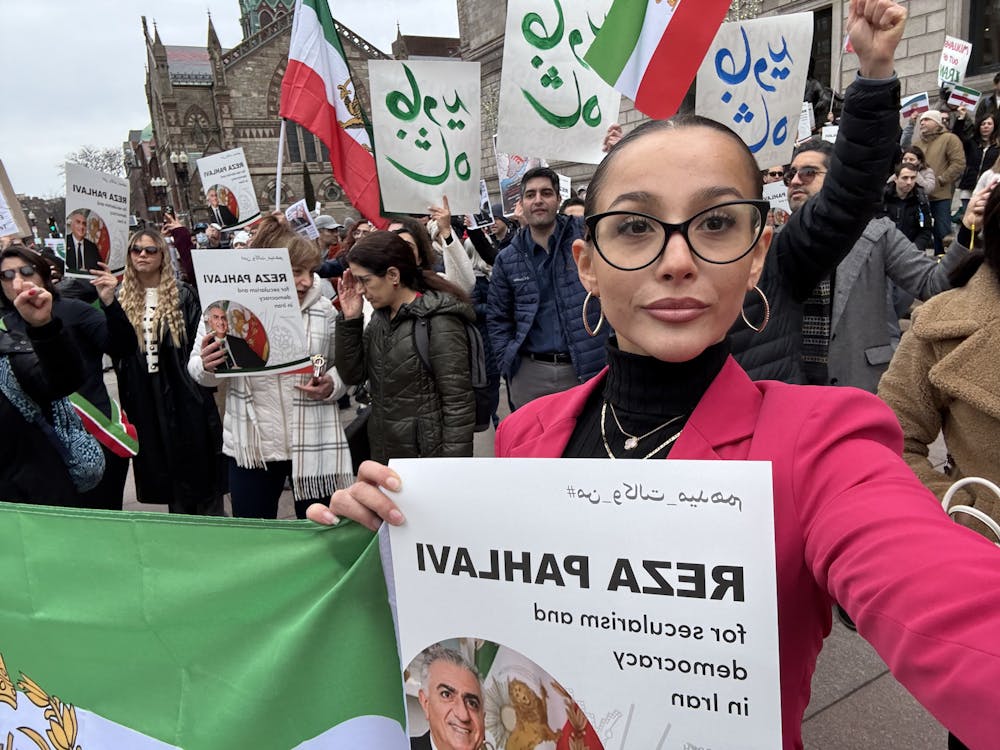In American discourse, diplomacy has somehow been cast aside as a choice for political eunuchs. The warmongers who’ve gained a stronghold in our government and media demand brash military action. Their approach targets our reptilian brain, attuned to a Biblical sense of justice or retribution. Having taken the onerous role of moral arbiters on the global stage, our response to breaches of international law or American standards has consistently been violent, climaxing with the Iraq and Afghanistan wars that enveloped the past decade and claimed the lives of well over 100,000 Iraqi and Afghani civilians. The 20th century was marked by extreme overreaction in the face of fear – legitimate or contrived – from Korea to Vietnam.
We are no longer privy to the moral clarity that marked WWI and WWII. That grey area has led to a pathological choice of arms over agreement, and an insistence on our flawed democracy over an acceptance of other forms of governing. The political fallout of military strikes is well-trodden territory for this breed of leaders: whenever innocent American lives are lost (say, in the attacks on the World Trade Center), the only reaction that satisfies both the executive branch and the emotions of the body politic is total war. To dissuade further attacks on our country, we flaunt our industrial might and hope that threat will be enough to stop the extremists.
Even after suitably criticising the Bush administration for their astonishing ineptitude in the face of September 11th, President Obama seemed likely to fall into the same trap, succumbing to the pressures from his own party to threaten Syria with a limited strike. In his recent address to the nation, he presented the crime: Bashar al-Assad’s use of saran gas to kill over 1,000 innocent Syrians, including women and children, after their continual denial that they possessed chemical weapons. Obama appealed to both “my friends on the right…and my friends on the left,” offering arguments that would appeal to his partisan constituents. To his more liberal followers, resistant to the thought of a third war since the turn of the century, he quite graphically invoked the image of dying children and their grief stricken parents. To woo the conservatives, Obama concluded his speech by praising American exceptionalism, and portrayed a diplomatic resolution with Russia and the United Nations as faulty and tenuous at best. He cast our choice of roles in Syria as either a militant father, or an indifferent observer: a classic false dilemma.
Watching Obama choose war, however limited and specific it might be, over statesmanship, even in light of Syria’s breach of international law, seemed inauthentic, as if he needed to prove his commitment to the American default option. Throughout his campaign and presidency, Obama has been criticized for not serving in the military, with claims that he would be handicapped when faced with situations like this one. In “The Prince”, Niccolo Machiavelli cites military service as a prerequisite to ruling a sovereignty and claims that the most powerful and effective princes aggressively pursued conflicts in the face of international or domestic unrest. One can only turn to the long list of prior U.S. presidents without military service – Clinton, FDR, Hoover, Coolidge, Harding, Wilson, Taft, Cleveland, Van Buren, and both Adams’ – to see that successful governance does not depend upon the president’s military record. The country is slowly learning that swift action, without remorse for its massive collateral damage or analysis of its efficacy, is misguided. Our decade long wars in Iraq and Afghanistan have not taught the terrorists their lesson, but have undoubtedly bred more extremists, having provided further cause for hatred against our country. There are undeniably circumstances that warrant force, but our government has become far too comfortable with these endless crusades, and exceedingly resistant to any “sissy” alternative.
When the United States cautiously decided upon a diplomatic resolution, championed by none other than the ever-macho Vladimir Putin, it sparked much internal resistance. Obama was criticized by the right for submitting to his Russian counterpart in light of our damaged relationship. Machiavelli also condemns Obama’s approach, writing “And here it is to be noted that a prince ought to take care never to make an alliance with one more powerful than himself for the purpose of attacking others, unless necessity compels him, as is said above; because if he conquers, you are at his discretion, and princes ought to avoid as much as possible being at the discretion of any one.” Machiavelli offers several cautionary tales about unequal political relationships, and yet it is clear that his definition of power is military might. Putin presents himself as more obviously strong in comparison with Obama’s academic résumé. The fear is that Putin, for lack of a better verb, will emasculate the United States by proving his global prowess while Obama sits back, thankful he doesn’t have to go to war.
Yet in our assessment of the peaceful resolution between Obama and Putin, it seems that we must change the lens through which we measure political power. We must measure political ability not by the standard of “who dominates through bloodshed”, but that of “who can reason and kindle productive alliances?” In order to understand Obama’s choices, however resistant he was to them at first, we must understand that our default option has been flawed from its conception. Perhaps going forward, we will be able to re-evaluate our need to destroy to prove a point, and instead mature into a role more suitable for the 21st century.
Nika Sabasteanski is a sophomore neuroscience major from New York City. Her column, Crooked Wood, discusses international affairs and philosophy.




